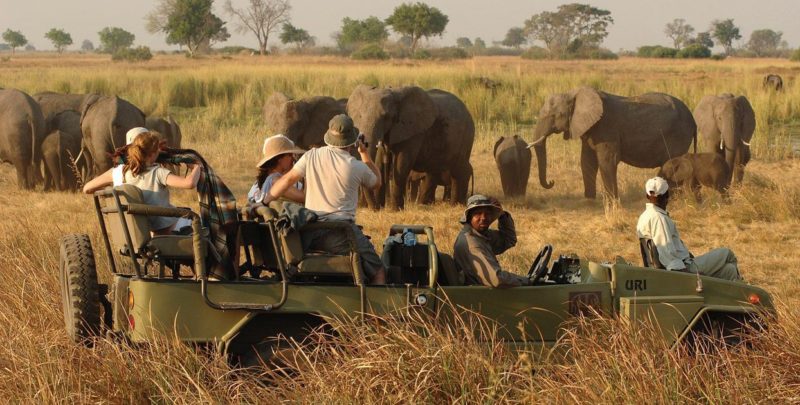Director General of the International Union for the Conservation of Nature (IUCN), Inger Andersen, in a statement to commemorate the International Day for Biological Diversity 2017, stresses that, if done right, the tourism industry also holds the key to conserving nature, and ensuring a more sustainable development. According to the Danish economist and environmentalist, nature-based tourism makes up more than 25% of the global travel market

How often do we credit our planet’s biological diversity with keeping us healthy, relaxed and inspired? Probably not often enough. Yet we all know it. Instinctively. We know that what we seek to relax: a walk in nature; a wonderful trip to the beach. Or a great vacation to a place seemingly untouched, remote and beautiful. So, nature and its bountiful biodiversity matter greatly for our sense of well-being. And tourism is indeed a multi-trillion-dollar industry that creates jobs, growth and opportunities for communities and societies across the planet.
That is why the choice of theme for this year’s International Day of Biological Diversity, “Biodiversity and sustainable tourism”, is so important. We really can get this right, and in getting it right, we support a significant number of the 2030 Sustainable Development Goals: reducing poverty, creating jobs and appropriate infrastructure, supporting equity while also supporting life on land and in the sea.
The travel and tourism sector is one of the largest and fastest growing global industries. It accounts for 10% of global GDP and one in every 10 jobs. This critical industry supports livelihoods and economies worldwide. And a successful tourism industry is dependent on a healthy natural world.
In fact, nature-based tourism makes up more than 25% of the global travel market. Done right, this industry also holds the key to conserving nature, and ensuring a more sustainable development. Done badly, the industry can degrade the environment and undermine biodiversity.
We know that tourism impacts on biodiversity can be devastating. Land clearing for tourism infrastructure, pollution and uncontrolled numbers of visitors destroy critical ecosystems that are often home to threatened species and provide an array of benefits to both people and nature.
As the official advisory body on nature under the World Heritage Convention, IUCN sees these impacts first hand. According to the IUCN World Heritage Outlook, which assesses the state of World Heritage sites, over a quarter of all natural sites on the World Heritage List are negatively affected by tourism.
But the impacts of tourism on the natural world do not have to be so destructive. To the contrary, the industry itself can directly contribute to preserving the very places it depends on. This is why IUCN salutes the United Nations and the UN Tourism Organisation for declaring 2017 the year of Sustainable Tourism. Because sustainable tourism not only boosts local livelihoods and economies, it further demonstrates that nature conservation and development do not have to be mutually exclusive.
At IUCN we work to contribute to achieving this on many levels. Working with tourism operators and developers, we help them conserve – rather than destroy – species and ecosystems, and empower – rather than exploit – local communities. Working with hotels and resorts, we help them minimise their negative impacts on nature and natural resources.
In 2014 IUCN launched a new global standard of excellence – Green List of Protected and Conserved Areas – which recognises and helps ensure success in managing some of the most valuable natural places on the planet. Sustainable tourism is an important element of this success.
Take the Ol Pejeta Conservancy in Kenya, for example. This green-listed area and home to the last three northern white rhinos, recently won the prestigious Tourism for Tomorrow award for its work to improve lives in surrounding communities. The Conservancy supports six health centres which cater to 20,000 community members. It supplies water, solar power and ICT equipment to local schools, and provides cooking stoves and solar devices to households.
Or the Arakwal National Park and Cape Byron State Conservation Area in Australia – the first green-listed park in the world – which attracts 1.2 million visitors each year. Byron Bay Arakwal people are formally recognised as the traditional owners of the land and jointly manage the reserve with the National Parks and Wildlife Service. The park runs educational programmes on the value of conserving cultural practices and biodiversity, and beachside accommodation and daily tourist visits provide funding for the park’s management.
So we all have a responsibility: The tourism industry needs to lean in to create sustainable solutions for the industry and the consumer. And we as consumers have to work on the demand side of the equation, by booking our vacations and trips to destinations that support sustainable tourism. In that way, tourists will return home refreshed, but will also have contributed to creating a fairer and healthier planet, proving that the tourist industry can thrive while contributing to the protection of the planet.
